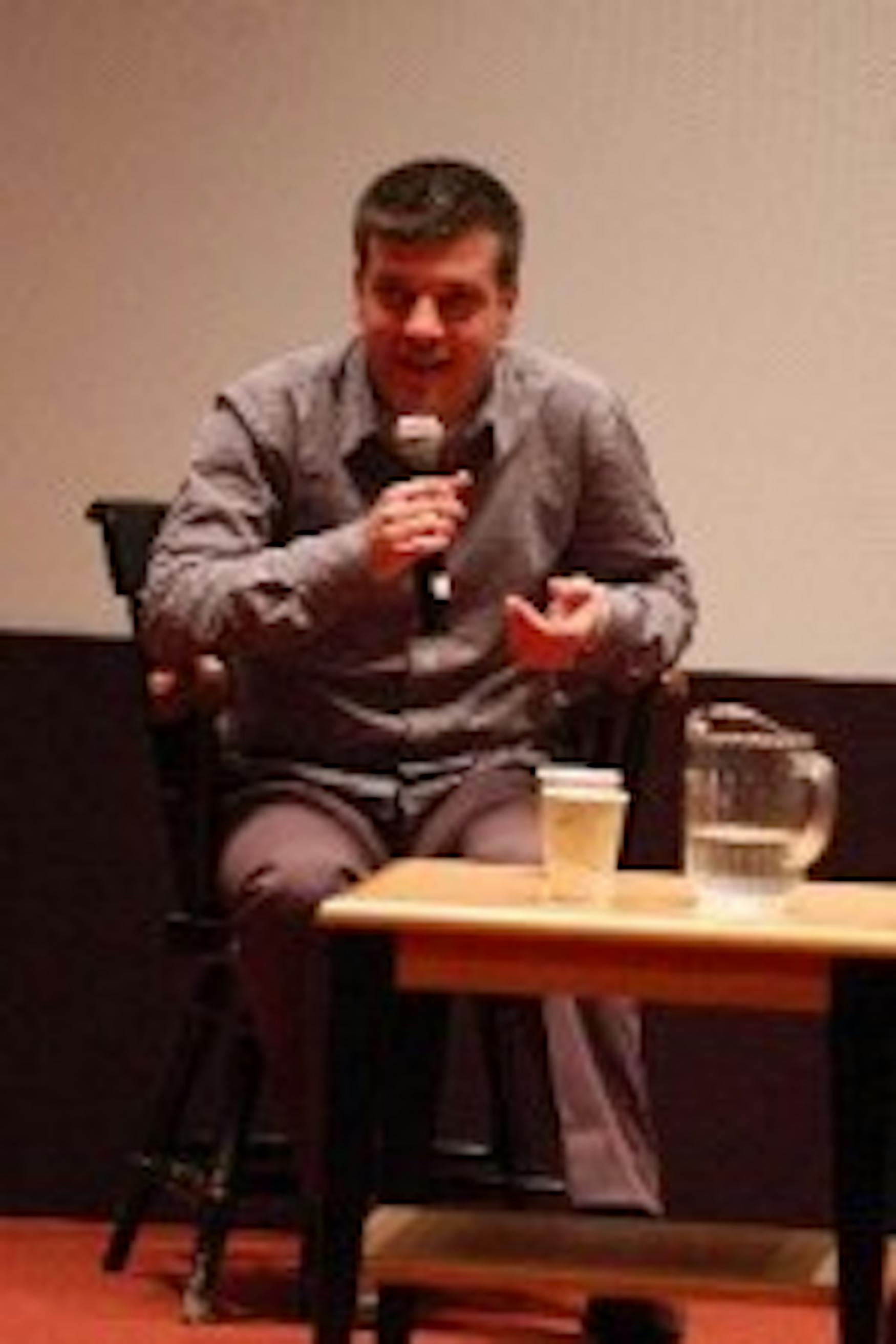Kashua discusses how comedy can create cultural understanding
The Schusterman Center for Israel Studies brought Israeli-Arab journalist Sayed Kashua to Brandeis last Tuesday to screen his popular satirical Israeli sitcom Avoda Aravit, or Arab Labor, in the Wasserman Cinematheque. Kashua is the author of Let it be Morning and Dancing Arabs and is also a columnist for Ha'aretz, an Israeli newspaper.The television show depicts a young Arab family struggling to assimilate into the Israeli cultural milieu. Amjad, the protagonist, is a writer for a Hebrew newspaper who lives in the outskirts of Jerusalem with his wife, Bushra, and their daughter.
The dialogue in the show is primarily in Arabic in the hope that Israelis will become familiar with the lovable characters and the show will help dilute the tension between the two cultures.
Kashua told the audience that this approach is intended to bring Arab culture to "the living rooms" of the Jewish viewers.
Arab Labor won an award for Best Israeli Television Series in the Jerusalem Film Festival in 2008. Kashua's books have also received praise in the press; of his 2002 novel Dancing Arabs, Publisher's Weekly wrote, "Kashua resists stereotype in this slyly subversive, semi-autobiographical account of Arab Israeli life. . Nearly absurdist at moments, this is a chilling, convincing tale."
Prof. Ilan Troen (NEJS), the director of the Schusterman Center for Israel Studies, invited Kashua to Brandeis to offer a new perspective on the dynamics of living in Israel, emphasizing the use of humor as a tool for learning.
"Many people learn about Israel through stereotypes and miss nuances of actual life that the arts can bring with great clarity. We try to balance the presentation of Israel between right and left and cultural understanding. ... It's the balance of the different perspectives one would need to understand any society," said Troen.
Troen noted in his introduction to the program, "Humor is an important form of commentary. . Jews are used to humor and engage in it very often. Humor expressed by a minority is a useful form of commentary on society. Everyone is a target: not just majority, but also the minority."
Concerning the Arabic dialogue in the show, Kashua explained, "All I want in the first season, without [Israeli viewers] being aware, [is] to see [sic] relationship to work [between Arabs and Jews]."
Kashua's personal style is self-deprecating and cynical. After Troen quipped that Kashua himself had been the object of Arab labor based on the number of events he attended at Brandeis last week, Kashua retorted, "I always have fun being abused by Jewish people."
When asked by an audience member if the show is "normalizing relations between Jews and Arabs," Sayed responded sarcastically "[The] peace agreement in the Middle East was signed because of [the show]. I don't know if it is going to help something . but my bank account."
On the other hand, some movements in the Arab world have criticized Kashua for writing for a Zionist newspaper and portraying stereotypes of Arab people. In a 2008 interview with The New York Times about the series, Kashua said, "The Arabic press reviews have been deadly-the critics are attacking everything I've done."
David Goodtree '84, who attended the event, said, "It was great, funny, insightful, clever. [It is] hard [for me] to know about Israeli Arabs, so I don't know if [the show] is accurate or exaggerated."
Goodtree also noted; "[Arab Labor reminded me of the] All In The Family [sitcom from 1970s] and how crazy your parents are."
Kashua concluded that while the show is supposed to be funny, it is essentially, a very sad story about how Arab Israelis often struggle to fit into the larger Israeli society.
When asked about his personal identity, Kashua responded that while he would rather talk about his role as a member of his family, his national identity is always targeted.
"National identity," he said, "I let the facts talk. I don't have the privilege to choose identity. I am attacked like a Muslim because Mr. Bush said I am a threat like a Muslim. [The] majority chooses my identity.



Please note All comments are eligible for publication in The Justice.